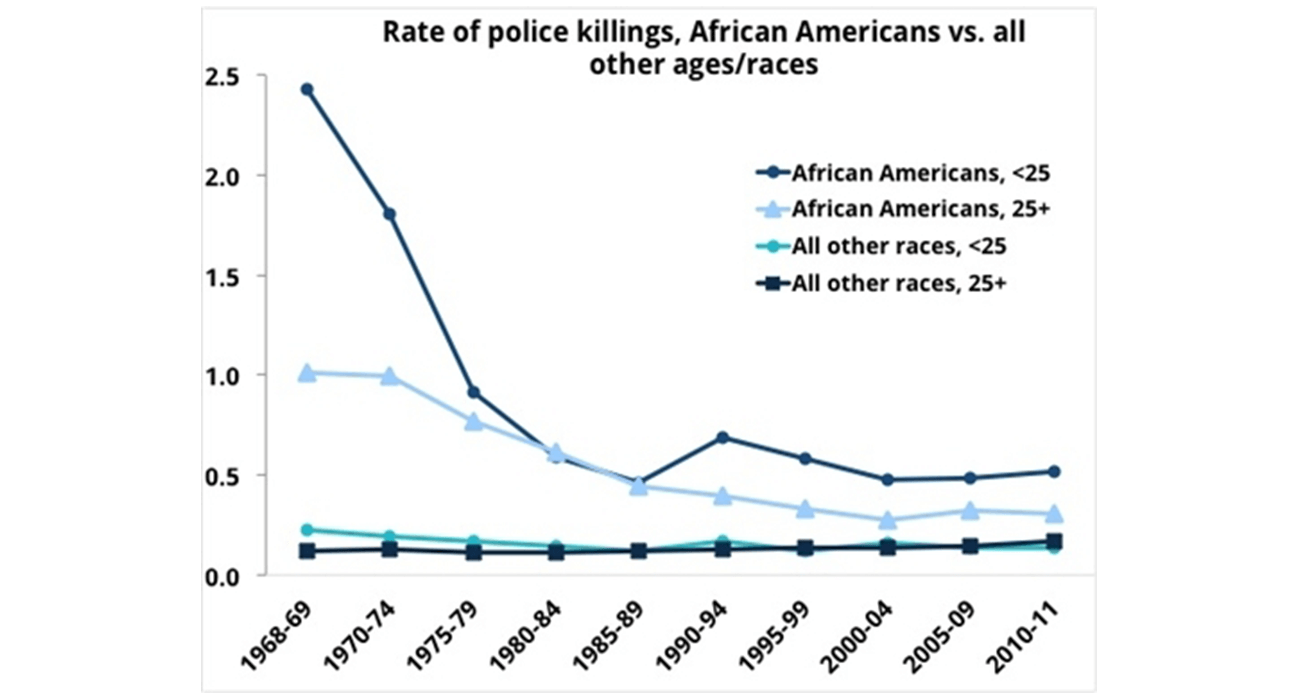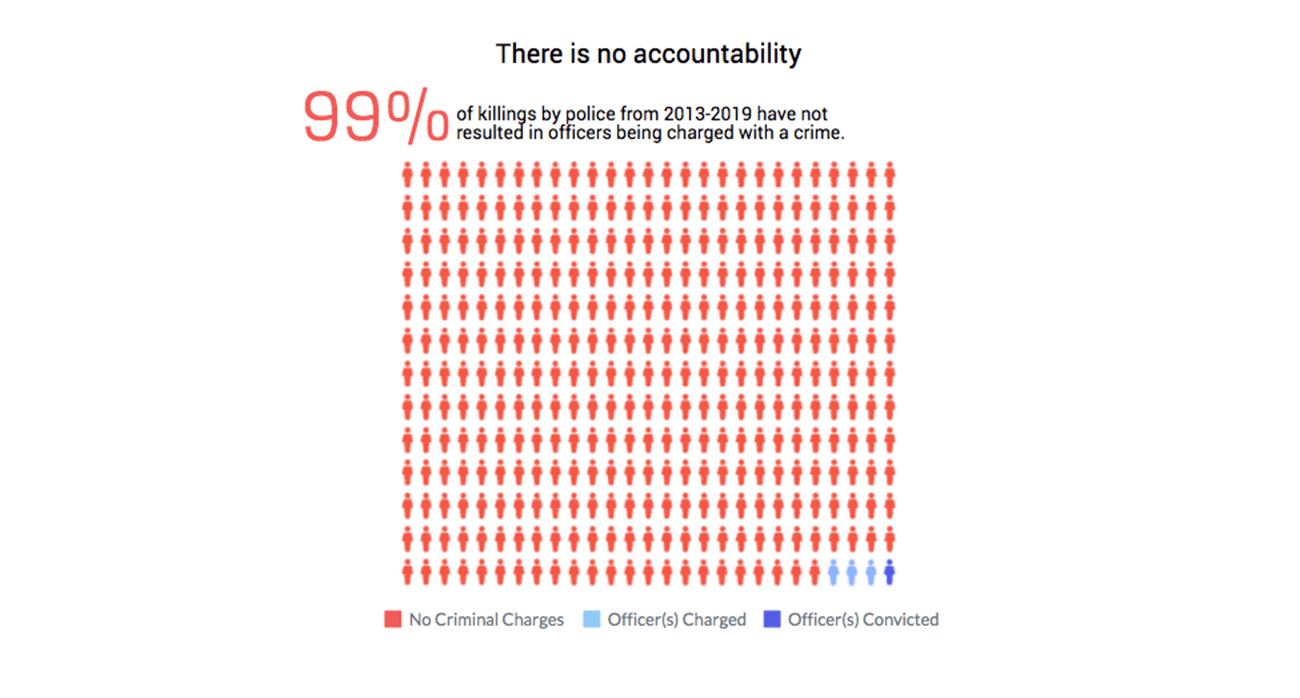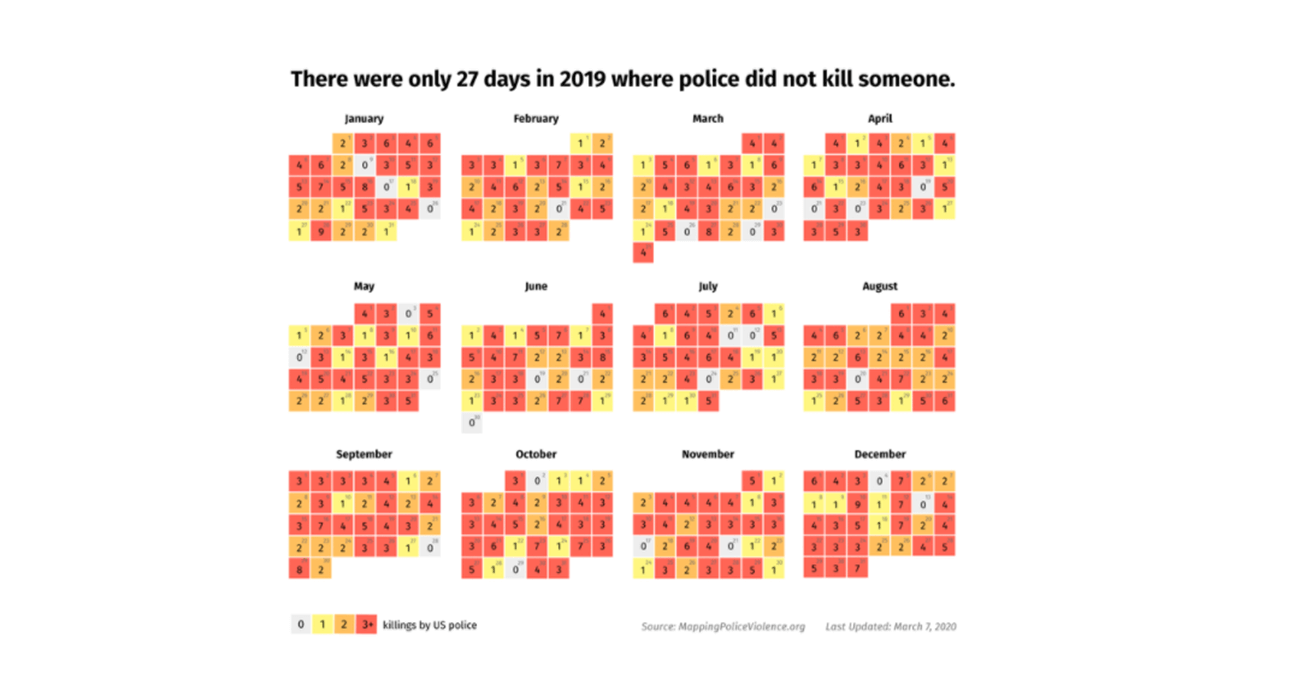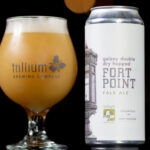
03 Jun Editorial: A Story of Brown Culture, White Skin, Black Lives Mattering, and Action
“A man dies when he refuses to stand up for that which is right. A man dies when he refuses to stand up for justice. A man dies when he refuses to take a stand for that which is true.” -Martin Luther King Jr.
Now hold my beer and watch this.
Martin Luther King Junior epitomizes the face of social injustice, specifically racial injustice, in America. He was murdered for it. Since then, so many innocent black people have been killed by police, and so little accountability has been in place, that the numbers don’t even exist.
Let that sink in.
We’re here for Houston, and we’re here for beer. We’ve made that abundantly clear. But what on earth are we doing if we don’t use our platform and our audience to speak out against the ingrained racism that we see in America?
It’s not enough to not be racist. We need to be actively against racism.
We need to be open-minded when we’re presented with views that clash with our own, and we need to be more concerned with loving people than we are with being right.
If we lose followers because of this, that’s cool. Jesus only had 12, and He did alright.
A Brief and Difficult Background to Set the Table for this Conversation
(This is the most vulnerable and honest thing I’ve ever shared publicly about my past. Whenever I talk about it, it makes my heart race with fear, so this was difficult to write. Pardon any incoherence. In addition, my intention is not to make this narrative about me; rather it is to offer information on the topic from the painfully transparent lens of someone that has a tiny bit of experience on the subject.)
I’m a Hispanic man with light skin. I don’t look Hispanic at all, but my mom’s green card and 15 dang names are about as Hispanic as it gets. I recently learned that my name was almost Alberto. As a first-generation immigrant, I relate very much with the idea that I’m not really from this land, but I’ll do my part to make it better while I’m here. And I’ll be damned if anybody’s going to stop me.
Despite feeling like an outsider in my head, I’ve always passed as an anglo man. As a matter of fact, I used to subconsciously embrace not being viewed as Hispanic because it benefitted me. Before I went to school for graphic design I did day labor in construction, and I operated saws, cranes, and forklifts in raw materials plants and manufacturing facilities. I worked alongside many Hispanic folks as well as lots of Black people and Vietnamese people.
I was often the only white person, or so everybody assumed, and that was ok with me. I don’t speak Spanish very well (just ask Josh), but I can get by when I need to. I understand a lot more than I can communicate, though. I used to embrace being viewed as the “white boy” because I could listen in on all the Hispanic folks as if I was none the wiser. It was usually benign conversation, but every now and again they’d be dogging somebody right in front of their faces. I digress.
My view on race and my culture has always been one where I literally got by because other people’s assumptions benefitted me. I genuinely didn’t even think about how my white skin affected me until I was 30 years old and looked back on my life. I was on the phone with a good friend of mine, Rontaye “@StayCloseTay” Butler, a fine artist and a proud Black man. I said something about being Hispanic, and he was like, “DOG. SHUT. UP. You’re Hispanic? We’ve known each other for 2 years, and this whole time I thought you were a white dude.” And my reply was, “Well, I am white. My skin is white. But my culture is Spanish, and Mexican, and some Belgian, aaand Houston AF, and all kinds of stuff. I guess I should talk about that more, huh?” Ever since then it’s something I’ve thought about.
I’ve never been treated badly or unequally because of my white skin or Hispanic culture. Quite the opposite. I was almost always the lead man on my crew despite often having less life experience or on the job credentials than those I was working alongside. I’d like to think it was my work ethic and natural leadership ability, but something in my gut says, that it was white privilege in full effect.
I’m obviously not Black, and I can’t imagine for one moment what it’s like to be the only Black person in the taproom or having to tell my kids that they might be hunted in the streets by police or vigilante citizens, but I empathize. I used to live a violent and abusive lifestyle, one that so many rappers glorify and Black men are stereotyped into, so it’s more than lip service or guilt, it’s true empathy.
I’ve been the person at the starting line in that video below.
I’ve been the person that institutionalized racism paints Black people to be.
I’ve been stomped out by cops that were safely protected by a system that didn’t give a shit about me DESPITE my skin color. I imagine how much worse that beating could’ve been if I were Black. Would I even be here to have changed my life, started a family, devoted my life to giving back to others, or written this article? Only God knows.
But that’s why I want to put some action behind my feelings. It’s the same reason we donated to Harvey victims. It’s the same reason we donated to shift workers that lost their jobs due to Corona. It’s the same reason we donate to Camp Hope and many other causes bigger than beer. We love people. P E O P L E. We won’t sit by on the sidelines and watch bad stuff happen like it’s ok with us, and we hope to encourage you to do the same.
If you’re one of the 14+ million people that posted on social media yesterday about Blackout Tuesday, don’t stop there.
Here are some things you should know to help educate others around you, some big picture things you can do to look inside yourself, and some super impactful but super easy things you can do right now.
Everything below has been gathered from people far wiser and more experienced on the matter of institutional racism.
Here Are 5 Things You Should Know About Institutional Racism and How it Affects Humans
- White privilege does NOT mean that a white person’s life is easier than that of a Black person. It means that the hardship a white person faces is usually not because of their skin. This is a great demonstration on privilege.
- In K-12 education systems, Black children are 3x more likely to be suspended than white children. Black students make up almost 40% of all school expulsions, and more than two-thirds of students referred to police from schools are either Black or Hispanic, says the Department of Education.
- In the workplace, Black college graduates are twice as likely as whites to struggle to find jobs. The jobless rate for Black people has been double that of whites for decades. A study even found that people with “Black-sounding names” had to send out 50 percent more job applications than people with “white-sounding names” just to get a callback. Black adults are twice as likely to have been laid off or furloughed as white adults, and since the onset of the coronavirus outbreaks, 24% of Black workers say they have lost their job compared with 20% of Hispanic workers, 19% of Asian workers, and 11% of white workers.
- If a Black person kills a white person, they are twice as likely to receive the death sentence as a white person who kills a Black person. Local prosecutors are much more likely to upgrade a case to felony murder if you’re Black than if you’re white.
- You can end it. Saying “I’m not racist” isn’t enough, though, no matter how much you mean it at your core. Saying “I will end racism,” and then making your first step, is.

“White people are taught that racism is a personal attribute, an attitude, maybe a set of habits. Anti-racist whites invest too much energy worrying about getting it right; about not slipping up and revealing their racial socialization; about saying the right things and knowing when to say nothing. It’s not about that. It’s about putting your shoulder to the wheel of history; about undermining the structural supports of a system of control that grinds us under, that keeps us divided even against ourselves and that extracts wealth, power, and life from our communities like an oil company sucks it from the earth. The names of the euro-descended anti-racist warriors we remember – John Brown, Anne Braden, Myles Horton – are not those of people who did it right. They are of people who never gave up. They kept their eyes on the prize – not on their anti-racism grade point average. This will also be the measure of your work. Be there. There are things in life we don’t get to do right. But we do get to do them.” -Ricardo Levin Morales, 2015, for Showing Up for Racial Justice (SURJ) work
“There comes a time when silence is Betrayal.”-Martin Luther King Jr.
Now is That Time. Now Here Are 5 Things You Can Do to Chip Away at the Institutional Racism that Plagues America (Amended from Lexi @prettydecent)
- Research and learn in public. Racism is more than just the individual acts of evil men like Travis and Gregory McMichael. Take it upon yourself to research the ways racism and white supremacy are built into the fabric of society in which you live; particularly your local environment. Don’t rely on Black scholars or friends to do the work for you; take an active and academic interest in these topics, and share your findings with your network as you expand your knowledge. A good place to start is Googling institutional racism, environmental racism, internalized racism, or the zoning laws of your county. You’ll learn a ton from this. I have.
- Stop sharing graphic videos of Black people being murdered without warning. That shit is traumatic. Your Black friends already know; they don’t need to be bombarded by these horrifically graphic reminders. If you’re going to share a graphic video, take the extra 5 minutes to hide it behind a prominent warning. Remember most social media sites autoplay video, so users don’t get to choose what they see as much as we’d like to think.
- Open your eyes wholeheartedly to anti-blackness around you. There is no such thing as color-blindness when it comes to this topic. There are no race-neutral spaces. Although racism and white supremacy affect non-white people in different ways, anti-blackness refers to the ways in which Black people have been uniquely targeted and stripped of their humanity. Notice what elements of Black culture are celebrated by everyone and which ones are snubbed. Take a moment to consider why, or ask somebody and open the dialogue about it.
- Pay attention to your white experience. We will never have a full empathetic understanding of Black people’s experiences. We can aim for empathy, but first, we must develop a comprehension and acceptance of how whiteness has fueled and impacted our own life. Consider what you’ve taken for granted: What have your experiences been like with police? The education system? Airport security? Job interviews? What are the things, particularly socially, that you’ve always just been “good at,” and how might whiteness have held you back, or more commonly, not held you back? How would the world be different if our society wasn’t centered around the white experience?
- Speak up and argue with ignorant people. Silence is an immense privilege; one that acts in direct service to upholding the system of white supremacy. Become a “did you know?” machine. You already do it about beer and other interests anyways. Studying and preparing statistics, facts, and figures will help you feel more confident in a debate, particularly with somebody that has different ideals. Don’t argue to win. Argue to love. Hold consistent, candid discussions about race. Call out every time a tv show or movie treats Black people like shit. Point out implicit biases, and be open-minded when others point them out to you. Figuratively speaking, grow a pair, and be bold enough to speak up and do something when you see racism.

“The role of silent whites is critical to protecting whiteness, for white dominance depends, in part, on the silence of other whites (Mura, 1999; Picca & Feagin, 2007). In the context of particularly difficult discussions, white silence serves to embolden explicitly resistant participants because it establishes that no challenge will be forthcoming, and can even imply agreement. Even if whites who are silent find the behavior of their peers problematic, their silence allows explicitly resistant participants to continually dictate the agenda of the discussion and rally resources around themselves as facilitators (and others) work to move them forward. At the minimum, the resistant participants receive no social penalty from other whites, and the silence effectively maintains white solidarity. Although silent whites might recognize and be troubled by the behavior of some of their white cohorts, they ultimately maintain their white privilege by not contesting this behavior.”Robin DiAngelo
Posting on social media that you’ve had enough is a great start, and taking some action on the long term things above is an even better second step. It’s more important to take a step in the right direction than it is to make the perfect step. This is messy stuff, and you might get it wrong, but please don’t let that discourage you.
To Get You Started, Here Are 5 Easy Things You Can Do Today
- Sign petitions to let your voice be heard in a circle far larger than your social media following
https://www.change.org/p/mayor-jacob-frey-justice-for-george-floyd http://lil.ms/4rdr/6qncrl http://www.runwithmaud.com/#petition http://www.standwithbre.com/#petition http://bit.ly/fundcommunity - Email/Text
City of Minneapolis PD police@minneapolismn.gov
Office of Police Conduct Review policereview@minneapolismn.gov Minneapolis 311 minneapolis311@minneapolismn.gov
Text JUSTICE to 668366
Here’s an easy script to start with: “Hello, my name is _______, and I’m a resident of _______ (city, state). This message is for _______. I’m emailing on behalf of the George Floyd Case. I’m asking for the prosecution of Derek Chauvin and his partner Tou Thao to the fullest extent of the law and that you will not rest until it happens. Floyd was arrested under an implied, non-violent crime, and bystanders claimed that he never resisted arrest. The approach that the officers took was one of brutality and apathy for human life. It resulted in murder. That can not be taken lightly any longer.” - Call
Governor Tim Walz 651-201-3400
Minneapolis PD 612-673-3000
Mayor Jacob Frey 612-673-2100
MPD of Int’l Affairs 612-673-3075
Mike Freeman 612-348-5550
Minneapolis Dept of Civil Rights 612-348-3550
Police Chief Arradondo 612-673-3550
Sheriff Dave Hutch 612-348-3744.
If you’re not sure what to say, www.justiceforbigfloyd.com/make-calls has your back - Donate.
NAACP Legal Defense Fund – Legal organization fighting for racial injustice
The American Civil Liberties Union – Provides legal assistance wherever civil liberties are at risk
Fair Fight – Ensures fair elections and combats voter suppression
Know Your Rights Camp – Provide resources for black and brown communities including hiring defense attorneys for anyone arrested protesting police brutality
Campaign Zero – Data-based research to inform policy solutions aimed at eliminating police brutality
National Police Accountability Project – Promoting the accountability of law enforcement officers and their employers for violations of the constitution and laws of the United States
Equal Justice Initiative – Provides legal representation to prisoners who may have been wrongly convicted, without effective representation, or denied a fair trial.
Innocence Project – Exonerates the wrongly convicted through DNA testing and reforms the criminal justice system to prevent future injustice. - Remove the words “I don’t know what to do” from your vocabulary, and replace it with “I have no choice but to figure out what to do.”
Bonus, check out Weathered Soul’s Black is Beautiful open-invitation collaboration beer. “The Black is Beautiful Initiative is to bring a collaborative effort amongst the brewing community and its customers, in an attempt to bring awareness to the injustices that many people of color face daily.” If you’re a brewer, get on it. If you’re a beer drinker, go buy it, and if you’re neither, that’s cool too. Maybe consider it.
Double bonus. Start capitalizing Black people whenever you use the term as a pronoun, just like you would for American, Hispanic, Vietnamese, or any other culture.

You see, friends, 10 or 20 years from now when our kids are talking about 2020, they’ll be mentioning COVID19 and all the deaths and turmoil. They’ll mention the fact that between 2013 and 2019, police in the United States killed 7,666 people. They’ll be talking about Trayvon Martin, George Floyd, and the thousands of others killed by police brutality and dishonored as their murderers walked away clean. They may even ask you what you did to help.
Mine will be much more than “share a post on social media.” I hope you can sleep at night with whatever your answer is.
Help us raise some money to change this. Get this glass, and we’ll donate the profits to George Floyd’s family. We’re also working on a shirt that should be dropping in the next week, thanks to the generosity and creativity of Rontaye “@StayCloseTay” Butler. Stay tuned for that.
I’d be remiss if I didn’t do this: Big shout out to my wife, Danielle – that just graduated with her Master’s in Social Work from UH after 12 long years of blood sweat and tears (via a dang Zoom call), for always inspiring me to be better, do more and be a voice for those that aren’t being heard. I love you. I appreciate you.
In closing, let me be real clear here. Police are not the enemy. Ignorance is. I personally know a handful of fine officers that have dedicated their lives to protecting and serving Houstonians, and I’ve even had the honor of being mentored for a few years by two of them, Billy Robinson Jr and his wife Sharome Robinson. These are two of the most patient, kind, loving, generous people, and their hearts are truly that of service. They represent what most cops are and what all cops should aim to be.
All cops aren’t bad just like all Black people or Hispanic people aren’t bad. Ignorance is bad. No accountability is bad. Staying silent is bad.
And finally, I’m not here for looting, rioting, and anything more than peaceful protest because two wrongs don’t make a right. However, I’ve heard it said that rioting is the language of those that are unheard. After years of peaceful protest being overlooked and even admonished, who am I to judge?
But, again, I digress. Please take action and educate yourself. Just do something. Please.
Beers to you, Houston. We love you almost as much more than Houston beer. And we appreciate you.




No Comments